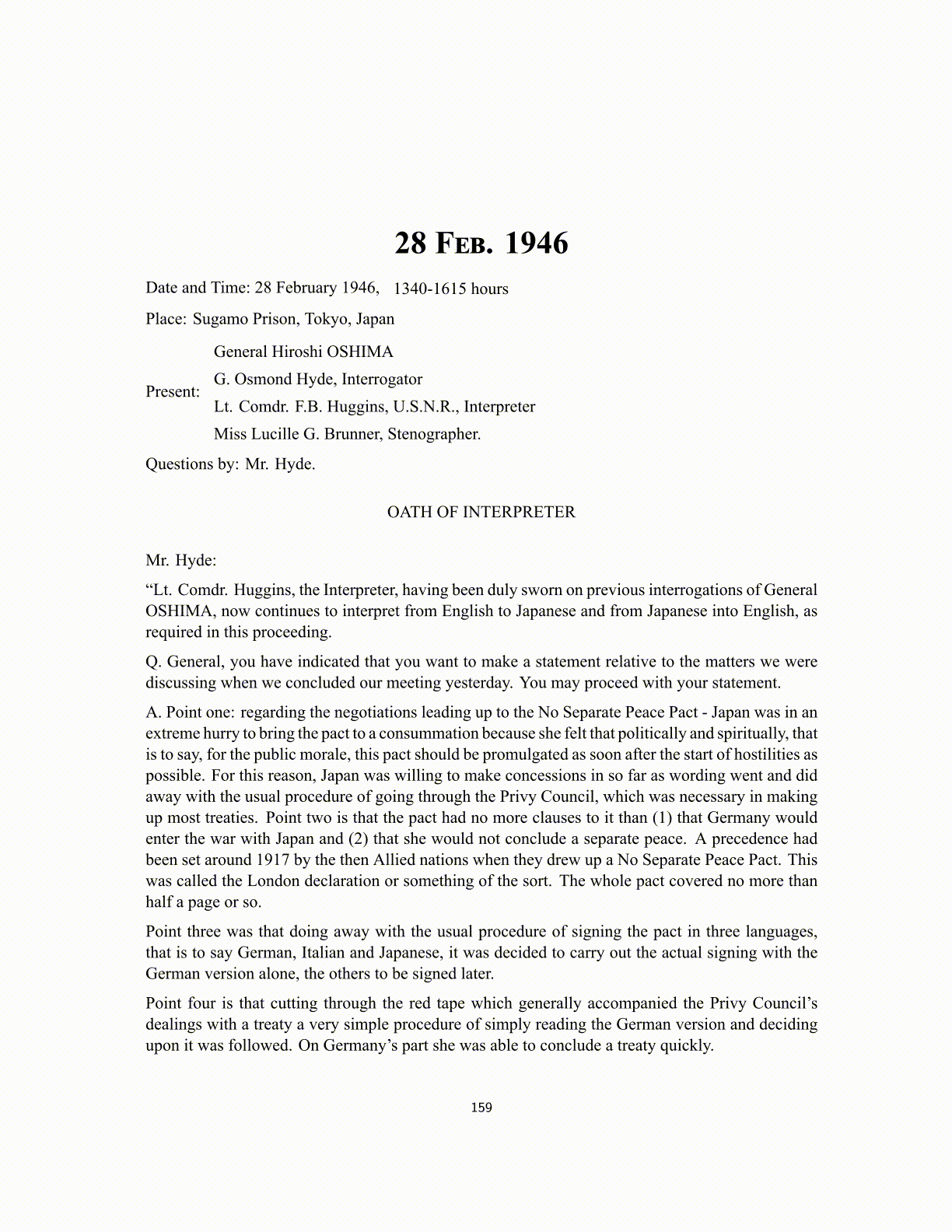
28 FEB. 1946 Date and Time: 28 February 1946, 1340-1615 hours Place: Sugamo Prison, Tokyo, Japan Present: General Hiroshi OSHIMA G. Osmond Hyde, Interrogator Lt. Comdr. F.B. Huggins, U.S.N.R., Interpreter Miss Lucille G. Brunner, Stenographer. Questions by: Mr. Hyde. OATH OF INTERPRETER Mr. Hyde: “Lt. Comdr. Huggins, the Interpreter, having been duly sworn on previous interrogations of General OSHIMA, now continues to interpret from English to Japanese and from Japanese into English, as required in this proceeding. Q. General, you have indicated that you want to make a statement relative to the matters we were discussing when we concluded our meeting yesterday. You may proceed with your statement. A. Point one: regarding the negotiations leading up to the No Separate Peace Pact - Japan was in an extreme hurry to bring the pact to a consummation because she felt that politically and spiritually, that is to say, for the public morale, this pact should be promulgated as soon after the start of hostilities as possible. For this reason, Japan was willing to make concessions in so far as wording went and did away with the usual procedure of going through the Privy Council, which was necessary in making up most treaties. Point two is that the pact had no more clauses to it than (1) that Germany would enter the war with Japan and (2) that she would not conclude a separate peace. A precedence had been set around 1917 by the then Allied nations when they drew up a No Separate Peace Pact. This was called the London declaration or something of the sort. The whole pact covered no more than half a page or so. Point three was that doing away with the usual procedure of signing the pact in three languages, that is to say German, Italian and Japanese, it was decided to carry out the actual signing with the German version alone, the others to be signed later. Point four is that cutting through the red tape which generally accompanied the Privy Council’s dealings with a treaty a very simple procedure of simply reading the German version and deciding upon it was followed. On Germany’s part she was able to conclude a treaty quickly. 159